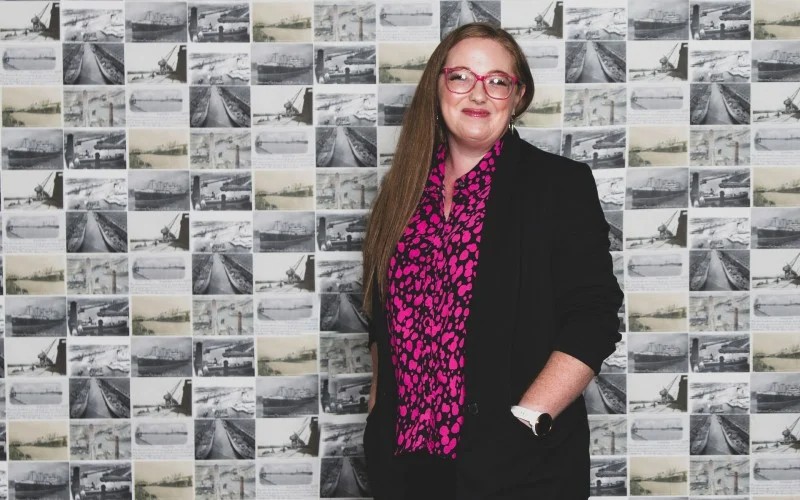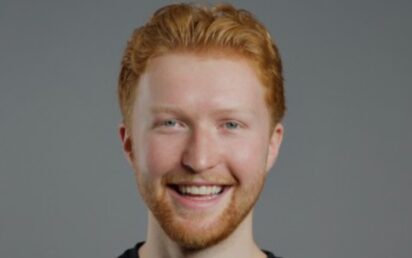Anyone raising venture capital should kiss goodbye to a work-life balance.
That’s the controversial view of Chris Hladczuk, CEO of New York-based Hanover, which has $1bn in assets under administration.
He stirred up a storm on social media by claiming it’s ‘delusional’ to think you can be successful in business if you’re not prepared to put in the hours.
Writing on LinkedIn he said: “Raising venture means you sign a commitment to build a billion dollar business.
“Your job is to do whatever it takes to win. So why do people say work-life balance is possible?
“Let’s just state the facts.
“Your odds are 0.00006% to build a billion dollar company.
“You’re competing in the ‘Olympics of Business’. But you think you can win an Olympic gold medal training half the time?
“To me, it’s delusional. I don’t think I’m 2x more talented than everyone else… so I can’t work 40 hours when others work 80 hours.
“Sound crazy? Don’t raise VC. Bootstrap your company and work 9-5.”
His outspoken comments have split opinions.
People need to shower
Former VC investor Kiran Mehta disagreed. “Every founder doesn’t need to go full Elon and work 72 hours straight without having a shower,” he said.
“In my experience, in 90 per cent of cases, those that are putting in the super long hours are both not very efficient nor good delegators. Two traits that aren’t well suited for VC backed startups.”
I’ve been addicted to work
Chris Bird is the founder of The Bird Consultancy and former COO of Manchester City FC. He’s been included in BusinessCloud’s Northern Leaders list.
He said: “After 35 years in business, I’ve experienced the dizzying highs and crushing lows. I’ve been through family breakdowns, depression, and even a complete personal collapse. If there’s one thing I know, it’s this: success demands time and commitment. I was raised with a strong work ethic, and, looking back, I probably took it too far.
“Many of my friends – top athletes, world-class performers – are flawed in their own ways, often addicted to their craft, their need to win, or other vices. I’m no different.
“I’ve been addicted to work, to challenges, and, honestly, to the validation that comes with success.
“Work-life balance? It’s never been part of my reality. Can you have everything? Absolutely not. But here’s the thing: my goal now is simpler. I want to earn everything I have – whether it’s trust, love, money, or respect. Nothing handed to me, nothing taken for granted.
“Chris (Hladczuk) might be right that success at the highest level comes at a price. But we all need to decide what that price is – and whether we’re truly willing to pay it.”
Work-life balance is different for everyone
Debra Cooper, banking partner specialising in real estate finance at Hill Dickinson, said: “I think the concept of work/ life balance is different for everyone and is different at different times and needs to be considered over a long-term period not week-by-week.
“Ultimately delivery of anything to a high level requires a huge amount of commitment and balancing that is hard.”
Stress can’t be maintained in long-term

Emma-Louise Fusari, founder, In HouseHealth
Qualified nurse Emma-Louise Fusari is the founder of In-House Health and said: “The term work-life balance suggests that work and life should be equal, and that’s never the case especially in startup land!
“There’s two issues at play, the hustle culture. Of course you need to put in the hours to be successful but working 12 hour days, 5/6 maybe even 7 days a week at max 60 per cent productivity levels is far more detrimental to your health and arguably your business than working 6 hours a day 5/6 days a week at a 90 per cent productivity level.
“The other issue is we are never truly present in the moment, burning valuable energy, creativity and performance by multitasking. When you’re working, spending time with friends and family or relaxing/practicing self-care, you should be focused on only one of these things at a time to find flow and maximise your time.
“Stress is not designed to be maintained for long periods of time and I bet you the success we hear of comes at a terrible price…addiction, relationship breakdowns, long-term sickness.
“Is that what it takes to win? There’s only going to be one winner and it’s rarely going to be the founder.”
Investment ties you into the investors
Fractional CTO John Knott said: “There’s definitely a certain element that by getting any form of investment you become tied to the promises made to those investors. Whether that be VC, shares, etc.
“And yes it will require putting in the hours, even if you build a great team ultimately it’s you that is accountable to the investors and will be putting in a huge amount of effort.
“With our restaurant IT firm many years ago, it was always the original group of us who would be first in office, last to leave.
VC world is more fiction than reality
Health and public services executive Andrew Finlayson said: “I would strongly counter anyone that believes 24/7 is anything more than an ego-stroking PR claim, vs anything literal.
“Sleep is needed, and anyone with experience of working at scale, pace or in any other testing dimension to achieve results should know it.
“Do you need to open yourself up to be dedicated? Yes. Do you need the odd hero shift? Sure. Are you thinking about your business a lot more than a common job? Yes. Do you need to bring in your deepest intrinsic motivations to keep going when times are tough? Absolutely.
“I’m writing a book relating to my experiences on this and there is more fiction and ego in the VC commitments than reality.”
Founders can ‘wave goodbye to any life’
Angus Maclaine, founder of Fundamental Group, said: “If you set up a business, you’re signing up to work over every holiday and most evenings (if not physically working, you will be thinking about work problems and trying to solve them). It’s way more work than just having a job. Add VC backing to that and absolutely wave goodbye to any ‘life’.”
You can’t have it all
Sieva Kozinsky, founder and CEO of Enduring Ventures, agreed. “Delusion is thinking you can have both worlds,” he said.
24/7 is only choice
Indian entrepreneur Zeeshan Mohammed said: “There’s no 9-5 if you are building a business. It’s only 24/7. Plus, not every business is scalable to a billion dollars. If you see the potential and can sell it to the big guys, it’s better to do with VC money. You can fend off the competition, build the brand and grow in the right way. I’d rather grow fast and work more hours than lack financial security.”
Working long hours isn’t everything
Adi Ben Mat, co-founder and CTO at Intellis, disagreed with Hladczuk’s comments. “I see it the other way around,” he said. “When you have VC funding, you’re not doing the work of 10 people yourself. It’s more about allocating resources wisely, streamlining processes, and making smart strategic moves. While working long hours can still be a factor, it’s not the defining challenge.
“On the other hand, when you’re bootstrapping, you often wear multiple hats and take on the workload of an entire team until there’s enough revenue to start building one.”
Long hours = burnout
Founder and best-selling author Patrick Mork also disagreed. “There’s a fallacy that building a great company requires a stupid amount of hours,” he said. “Certainly there are times when it does, but for me, a founder who is constantly working seven days a week and long hours is not working efficiently, burning themselves out and not managing their energy.
“It also means that they’re unable to delegate or trust their teams with tasks that are better suited to others. When you have the right team, the right leadership mindset and the right investors you can find somewhat of a balance, but that doesn’t mean that there are not sprints that are going to be very long and very hard along the way.”
Stay true to yourself
Chilean tech entrepreneur Jose Puga, co-founder of ChucaoTech, said: “If you want to build an innovative startup, in a world where you will compete with 1000’s of innovative startups, then you are going to need to put your best effort. No matter who funds you.
“Having been employed for more than 10 years , to then co-found and bootstrap for six years to then get VC funding, I can tell you the desire and pressure to deliver is in your genes, or it is not. No matter to whom.”
Don’t grind yourself into the ground
James Mahy, founder of Bristol-based Bearly Fit, said: “As a founder I’ve seen far too many people take VC funding, end up grinding themselves into the ground and ultimately fail anyway.
“I’m building a business that is sustainable and has steady growth. It may not be a billion $$$ company but it’ll be mine and it’ll mean I can help my users without worrying about investors.”
Treat people as people
Byron White, co-founder of Yaupon Brothers, said: “I think GPs (general partners) of VC funds need to remember that they are investing in people, and people have needs which include not sacrificing everything they enjoy in life because their investors playing with other people’s money demand it.
“I agree that it takes a ton of work and grit to make it. Does it require zero work/life balance? No, it does not. That’s a toxic mindset and it doesn’t work.”


